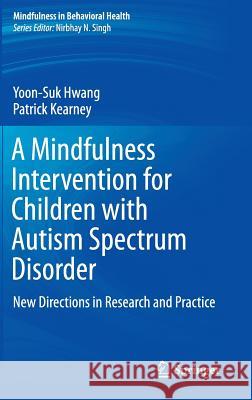A Mindfulness Intervention for Children with Autism Spectrum Disorders: New Directions in Research and Practice » książka
A Mindfulness Intervention for Children with Autism Spectrum Disorders: New Directions in Research and Practice
ISBN-13: 9783319189611 / Angielski / Twarda / 2015 / 150 str.
A Mindfulness Intervention for Children with Autism Spectrum Disorders: New Directions in Research and Practice
ISBN-13: 9783319189611 / Angielski / Twarda / 2015 / 150 str.
(netto: 383,36 VAT: 5%)
Najniższa cena z 30 dni: 385,52
ok. 16-18 dni roboczych.
Darmowa dostawa!
This book examines the earliest strata of Buddhist texts, the Pali Nikayas, to construct a theoretical and operational understanding of mindfulness that is both true to its origins and applicable to contemporary conditions. On the basis of this foundation, the book explores how mindfulness practice can be adapted for people with developmental disabilities, with a focus on autism spectrum disorders (ASD). The resultant approach to mindfulness training is called inclusive Mindfulness-Based Attention Training (iMBAT). A small-scale longitudinal study, in which mindfulness is taught to six mothers of children with ASD and aggressive behaviours along with the children themselves (CA 8-16), is described and analyzed to illustrate how this understanding of mindfulness practice is applied to a specific population. Although mindfulness has been widely studied in the fields of behavioral health and social sciences for the past 20 years, no firm consensus has yet been reached regarding its definition and measurement. If mindfulness is to be studied and applied scientifically, its fundamental theoretical concepts and functions need to be clarified; otherwise, the foundation for this area of research remains weak and vulnerable to criticism. This need has recently been addressed by a return to the Buddhist traditions from which mindfulness arose, to integrate new research with traditional understandings of mindfulness and its contexts. This book examines the application of current mindfulness practices within its original context for a small sampling of mothers whose children are displaying aggressive behaviors. It is a must-read for researchers, professionals, and graduate students in developmental psychology, social work, education and related disciplines.











